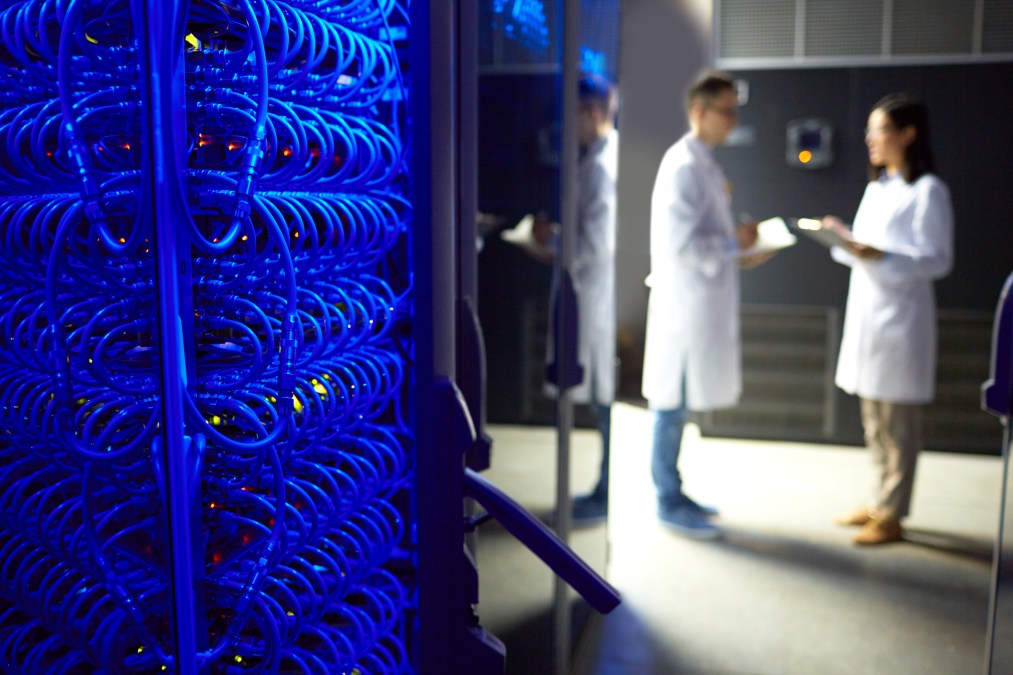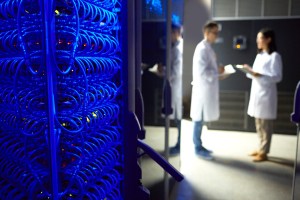Supercomputing consortium adds members as number of coronavirus projects increases, too

The White House added three partners Monday to its supercomputing consortium trying to speed the work of coronavirus researchers.
The chipmaker Advanced Micro Devices (AMD) and graphics processing unit (GPU) producer NVIDIA joined, along with the National Center for Atmospheric Research’s Wyoming Supercomputing Center. The growing group of government, industry and academia members is lending infrastructure and resources to studies on limiting the virus’ spread.
The COVID-19 High Performance Computing Consortium has already supplied 15 research proposals with the compute power they’ve requested online since it launched on March 22, said Michael Kratsios, U.S. chief technology officer, in a tweet.
“This is truly a whole-of-America effort to advance COVID-19 research,” Kratsios said.
More than 30 supercomputers are involved in the effort to complete complex bioinformatics, epidemiology, molecular modeling and health care system response calculations in mere hours or days.
NVIDIA plans to help scientific teams ingest and process data faster by optimizing the throughput of supercomputers. A 20% optimization of a 330-petaflop system equals 60 petaflops, rivaling the fourth-fastest supercomputer in the world.
The company’s team of computer scientists will provide molecular biology, medical imaging, genomics, and computational fluid dynamics and visualization expertise.
Packaging of software for artificial intelligence (AI) and life-sciences applications will be done using research tools in NVIDIA NGC, a hub for GPU-accelerated work.
“The COVID-19 HPC Consortium is the Apollo Program of our time. Not a race to the moon, this is a race for humanity,” said Ian Buck, vice president of accelerated computing at NVIDIA, in a statement. “The rocket ships are GPU supercomputers, and their fuel is scientific knowledge. NVIDIA is going to help by making these rockets travel as fast as they can.”
The consortium’s new arrivals join the Department of Energy, National Science Foundation, NASA, IBM, Amazon Web Services, Google Cloud, Microsoft, Hewlett Packard Enterprise, Massachusetts Institute of Technology and Rensselaer Polytechnic Institute.
On March 11, the White House Office of Science and Technology Policy that convened the consortium held an initial call with tech companies seeking AI breakthroughs in coronavirus response.
The Brookings Institution has since warned that AI is only as good as the subject matter experts using it to make predictions and that, without a database of prior COVID-19 outbreaks, it will be tough for algorithms to accurately make pandemic projections.
“Like many tools, AI has a role to play, but its effect on the outbreak is probably small,” wrote Alex Engler, a Rubenstein fellow of governance studies at Brookings. “While this may change in the future, technologies like data reporting, telemedicine, and conventional diagnostic tools are currently far more impactful than AI.”
Some agencies have more experience than others in working on AI.
DOE — which runs the national laboratory system — is already using machine learning to search for drugs that might be effective against the coronavirus, proteins in the virus and its hosts that might make good drug targets, and ways to reduce the burden on the health system and vulnerable populations.
“This effort is enabled by work our labs have been doing for several years leveraging AI in the fight against cancer,” said Paul Dabbar, undersecretary for science, in a department interview. “The lessons learned from that work have been quickly transitioned to support similar efforts for COVID-19.”






